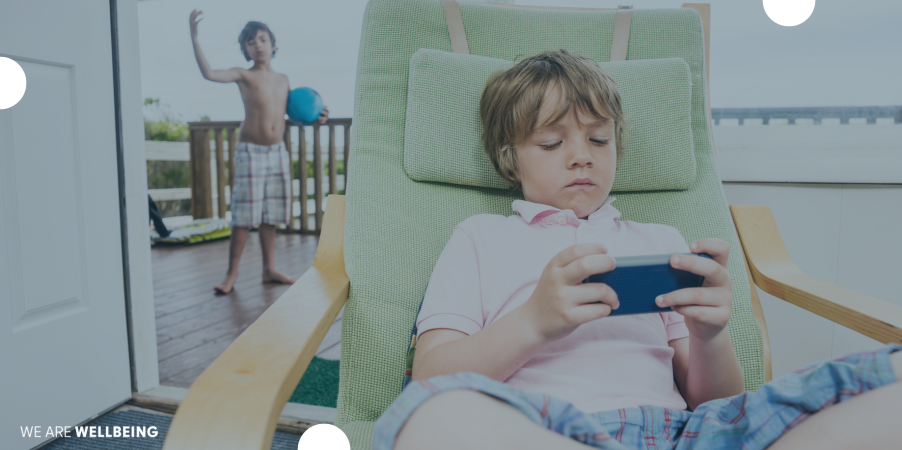With summer sunshine here (and some UK weather permitting!), it’s time for kids to swap screen time for real‑world adventures. A 2022 Ofcom report found that children aged 5–15 in the UK spend an average of 4 hours per day on screens, while younger children (3–7) clock in nearly 3 hours daily (eden-ts.com). That’s a lot of sitting—and it’s taking a toll.
📉 The Downsides of Excessive Screen Time
- Physical health impacts
- According to UK Parliament data, over 70% of young people do not get even one hour of daily physical activity, while only just over 20% meet the guideline of an hour of moderate-to-vigorous exercise (GOV.UK).
- Prolonged sitting is known to contribute to obesity, back and neck strain, eye fatigue, and headaches (The Times of India).
- Mental and emotional effects
- The Alzheimer’s-funded ALSPAC “Children of the 90s” study based in Bristol found higher computer use linked with increased anxiety and depression by age 18 (University of Bristol).
- A broad systemic review noted high screen time correlates with poorer psychological outcomes, whereas greater “green time” (outdoor exposure) correlates with better mental wellbeing (PMC).
- Worryingly, UK hospital admissions for mental health issues in under 18s have surged by 65% over the past decade, with excessive screen and social media use playing a key role (The Guardian).
- Sleep & cognitive disruption
- Screen time before bed disrupts melatonin, delaying sleep and reducing sleep quality. Sleep-deprived children display poorer cognitive function, elevated anxiety, and emotional volatility .
🌿 A Screen-Light, Outdoor-Rich Summer
Here are seven practical strategies to boost outdoor fun and reduce device reliance:
- Set “Green Time” goals
Encourage at minimum one hour outdoors daily—a baseline school sports sessions often stipulate, yet over 70% of kids don’t reach it (The Times). Benefit? Less screen-induced anxiety, more resilience. - Embrace phone-free experiences
- UK providers like PGL are running tech-free “Thrive” programmes, incorporating climbing, kayaking, mindfulness, and forest-bathing—shown to reduce stress, improve mood, and build social skills (The Guardian).
- Encourage local camps and outdoor clubs
Cornwall’s “rewilding” phone-free camps, and community-run youth clubs are gaining traction—helping children detox digitally, build confidence, and connect with peers (The Times). - Implement daily routines with boundaries
- Phones off during meals, in bedrooms, and after 8pm.
- “Outdoors before devices”—a 30-minute nature session before any screens.
- Role-model healthy habits
Parents’ screen use shapes children’s behaviour. Show that time outdoors—dog walks, bike rides, gardening—is fun and rewarding. Children mirror what they observe. - Offer engaging, screen-free alternatives
Set up team games in local parks, nature scavenger hunts, tree-climbing sessions, skateboard setups in driveways. Community initiatives that temporarily close streets for play are making a comeback . - Raise awareness and empower kids
Talk with your children about why balance is important. Encourage them to monitor their screen habits—Ofcom data shows 40% of UK 12–15 year-olds are already managing their own phone use (The Guardian).
🎯 The Big Picture
Shifting even just an hour or two each day from screen to outdoors can transform the summer—and young lives:
- Improved fitness, posture, eye health
- Enhanced emotional balance, lowered anxiety, better sleep
- Stronger social skills, resilience, and family bonds
Data and experts agree: embedding green time—outdoor play, exploration, teamwork—can buffer the negative impacts of screen saturation (PMC). Let’s make UK summer 2025 a turning point.
✔️ Summer Starter Checklist
|
Task |
Action |
|
Track screen vs outdoor time |
Aim for ≥ 1 hr per day outside |
|
Daily go‑device‑free mini‑rituals |
Meals, evenings, before bedtime |
|
Plan one outdoor adventure/week |
Group, family, or solo exploration |
|
Rotate in nature-based camps |
PGL, regional outdoor experiences |
|
Lead by example |
Put your phone away—go outside |
This summer, let’s give our children the freedom to explore, move, and smile—off‑screen and in the real world.







